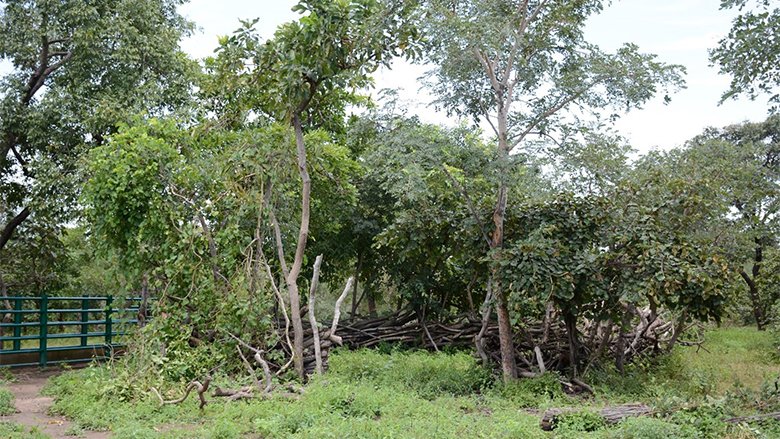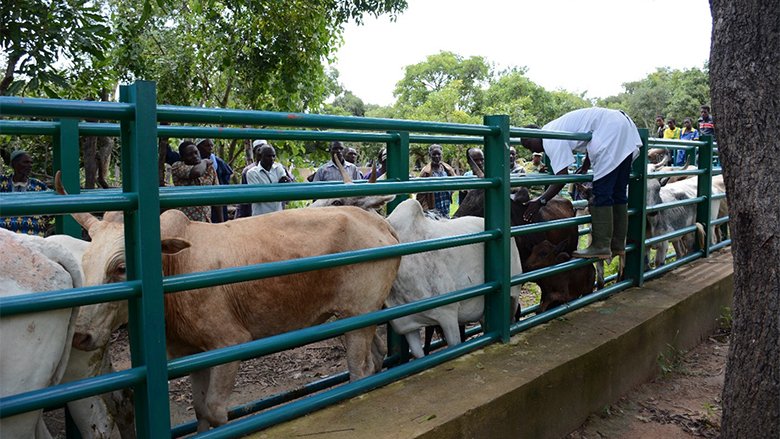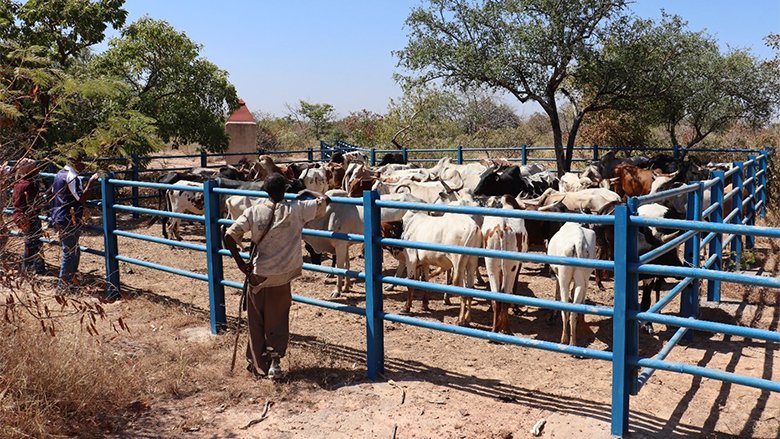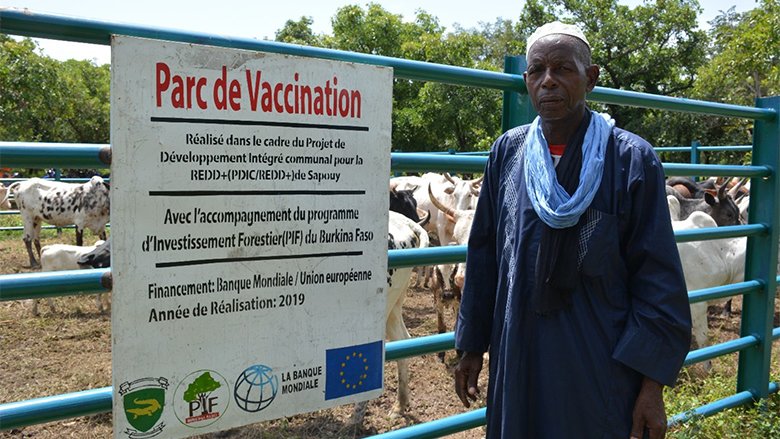Yacouba Lido is a herder in Galo, a village in the commune of Sapouy, located about 100 km from Ouagadougou, the capital of Burkina Faso. He owns a herd of several hundred cattle. In the past, when he needed to vaccinate his animals, he and his fellow pastoralists had no choice but to cut down trees to build wooden vaccination pens.
“Without a vaccination pen, it is impossible to vaccinate hundreds of animals in one day. In the past, we had to cut down at least 400 feet of large trees to make a single vaccination pen. However, the uncontrolled and unauthorized felling of trees is prohibited. So we were always in conflict with the water and forestry authorities,” explains Yacouba.




